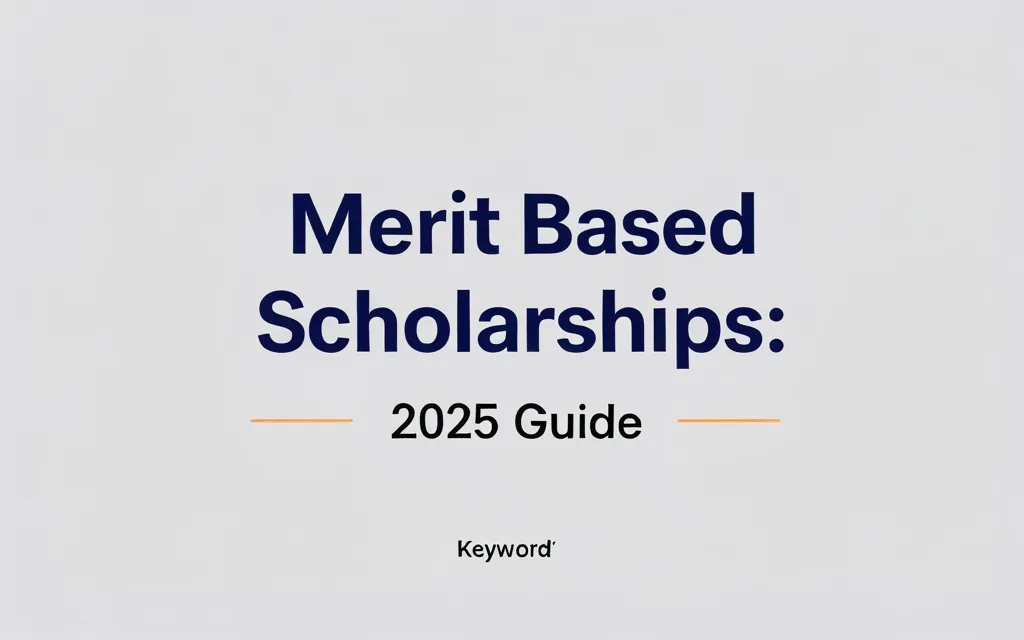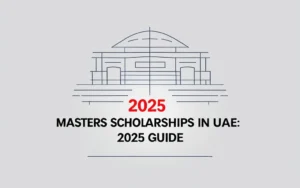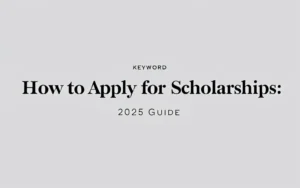Merit Based Scholarships: 2025 Guide
Merit based scholarships are a vital source of funding for high-achieving students in 2025. Whether you excel academically, lead meaningful extracurriculars, or demonstrate exceptional talent, these awards reward excellence—often covering partial to full tuition. In this guide, we’ll explore benefits, eligibility criteria, top awards, and actionable application steps to help you secure merit based scholarships.
Table of Contents
- What Are Merit Based Scholarships?
- Benefits of Merit Based Scholarships
- Eligibility Criteria and Application Requirements
- Academic and Extracurricular Achievements
- GPA and Standardized Tests
- Letters of Recommendation and Essays
- Top Merit Based Scholarships for 2025
- University of Lynchburg Hopwood Scholarship
- TEDS Faithful Future Scholarship
- Institutional Merit Grants: Statistics & Trends
- Generous Universities for Merit Aid
- Williams College
- Tips for Winning Merit Based Scholarships
- How to Apply for Merit Based Scholarships
- Frequently Asked Questions
- Can international students apply for merit based scholarships?
- Are merit scholarships renewable?
- Do I need to demonstrate financial need?
- Conclusion
What Are Merit Based Scholarships?
Merit based scholarships are financial awards granted to students based on achievements rather than financial need. Common criteria include GPA, standardized test scores, leadership roles, artistic talent, and community service. Unlike need-based aid, these scholarships focus solely on your accomplishments.
Benefits of Merit Based Scholarships
- Reduce or eliminate tuition costs without repaying.
- Enhance your resume—award recognition highlights academic and personal strengths.
- Increase access to top-tier institutions and programs.
- Unlock networking opportunities with scholarship foundations and alumni.
Eligibility Criteria and Application Requirements
Each scholarship sets its own standards. However, most merit awards consider similar elements:
Academic and Extracurricular Achievements
High GPA, rigorous coursework, and leadership roles strengthen your portfolio. Many programs require transcripts and activity résumés.
GPA and Standardized Tests
Competitive GPAs (3.5+) and strong SAT/ACT scores (if required) are common benchmarks. Check each scholarship’s minimum requirements.
Letters of Recommendation and Essays
Secure at least two strong recommendations from teachers or mentors. Craft persuasive essays that illustrate your achievements and future goals.
Top Merit Based Scholarships for 2025
Here are a few standout awards to consider:
University of Lynchburg Hopwood Scholarship
Amount: $96,000 total
Deadline: July 31, 2025
Notes: Automatic consideration upon admission; renewable with full-time enrollment.
Cited from: Scholarships.com
TEDS Faithful Future Scholarship
Amount: $9,000
Deadline: August 1, 2025
Notes: 20% tuition grant renewable throughout study.
Data source: Scholarships360
Institutional Merit Grants: Statistics & Trends
Recent data highlights distribution patterns at private colleges (The College Investor).
- Dependent students receiving grants: 66.8%
- Independent students receiving grants: 18.9%
- Income distribution of recipients: low income 32%, middle income 27%, high income 41%
- Gender distribution: men and women equally likely to receive grants
- Race distribution: white students more likely to receive and receive larger grants than minority students
Trend 1: Increasing availability of merit scholarships at moderately selective private colleges, often favoring higher-income families.
Trend 2: Growing emphasis on automatic consideration—many institutions award merit aid upon admission without a separate scholarship application.
Generous Universities for Merit Aid
Some colleges stand out for their commitment to merit awards:
Williams College
- Average grant: $64,176
- Percentage receiving aid: 67%
- Average net cost: $16,988
- Meets 100% demonstrated need without loans
Source: BestColleges
Tips for Winning Merit Based Scholarships
- Start early: research deadlines and requirements months in advance.
- Maintain a strong GPA and rigorous course load.
- Develop leadership roles in clubs, sports, or community service.
- Polish your resume and essays; have mentors review them.
- Apply broadly: combine institutional awards with private scholarships.
How to Apply for Merit Based Scholarships
Follow these steps to streamline your applications:
- Research awards: use databases and school websites. Visit top merit scholarships for college 2025 to compare options.
- Prepare materials: gather transcripts, test scores, recommendation letters, and personal statements.
- Customize essays: address each scholarship’s mission and values.
- Submit on time: track deadlines via spreadsheet or calendar alerts.
- Follow up: confirm receipt and thank recommendation writers.
Frequently Asked Questions
Can international students apply for merit based scholarships?
Yes. Many U.S. colleges offer merit awards to international applicants based on academic and extracurricular achievements. Check each institution’s policy.
Are merit scholarships renewable?
Most scholarships require maintaining a minimum GPA and full-time enrollment to renew. Review renewal criteria carefully.
Do I need to demonstrate financial need?
No. Merit based scholarships focus on achievement rather than financial circumstances. However, some awards consider both merit and need.
Conclusion
Pursuing merit based scholarships in 2025 can significantly reduce your college expenses and reward your hard work. Start your research early, polish your applications, and apply broadly to maximize your chances. Good luck!
Ready to secure funding? Explore our academic merit scholarships 2025 listings and start your applications today!






